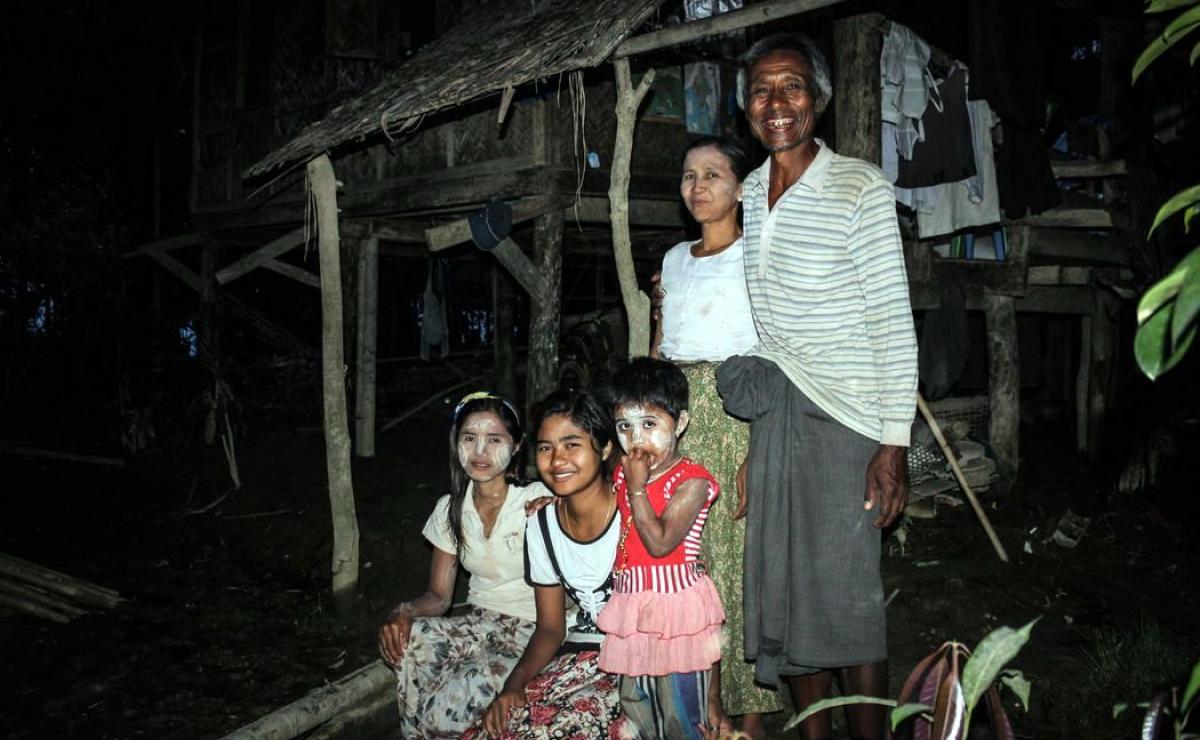LWF relief brings hope to people in Myanmar

SITTWE, Myanmar/GENEVA (LWI) – U Kyaw Thein has planted again. After a flood destroyed the livelihood he had built up over several years, his family saw no other way than to to move away from his home village. Support by The Lutheran World Federation (LWF), however, gave him the hope and courage to start anew.
The 61-year-old subsistence farmer and his family live in Bauk Ywar village, Mrauk-U township, Rakhine State – the region most heavily affected by the floods that hit Myanmar in the wake of Cyclone Komen at the end of July.
U Kyaw Thein’s house still bears the marks of the water which has since receded. There is a dark line, and missing planks although the house is built on stilts already. Worse, however, is that the family’s livelihood is gone. “I couldn’t save my cows,” U Kyaw Thein murmurs. When the water was already chest-deep, he tried to pull them to safety. “I was very tired from pulling them; I thought I would drown as well. I was very afraid. I was not able to save them,” he recounts that fateful day in August.
As the water kept rising to the second floor of his house, U Kyaw tied bamboo poles together for a makeshift raft. Together with his wife and three youngest children, they floated to a nearby monastery, where they survived on food donations for the next five days.
Livelihoods destroyed
Coming home, the full extent of the damage became visible. “Seven acres of my farmland were destroyed,” U Kyaw says. “The water also ruined 50 bags of our paddy seeds. We had them in store for the next planting season. The water also carried away most of my farming tools, so what can I do now? I can’t harvest. I also lost 12 of my chicken,” he continues with a shaky voice.
The water also damaged the family’s latrine, one of his daughters lost all her school books and supplies. “Everything was damaged by the water, my school was closed for two weeks,” she says.
According to an assessment undertaken by the LWF, the school, two bridges and 35 percent of the houses in the village were severely damaged. 6,200 baskets of paddy seeds were lost, and the two village ponds, used as a freshwater supply, were contaminated with flood water. The paddy fields were submerged under 8 feet of water. Rakhine state was declared a national disaster zone by the Myanmar government.
LWF response
Immediately after the flood, LWF Myanmar mobilized an emergency response team which conducted rapid needs assessments and engaged in distributions of relief goods in 18 villages. One of them was Bauk Ywar, where U Kyaw Thein’s family lives.
As part of a 1-month food ration, the family together with 42 other households in Bauk Ywar received rice, cooking oil, salt and beans.
“I was so worried,” U Kyaw recalls. “After the flood we returned to our house. We could not eat. We could not sleep. How would we survive? My family wanted to leave this village and move far away – somewhere the flood would not reach us if it happened again”.
The relief goods gave U Kyaw Thein and his family the courage to make a new start in their old village. The family has started to plant again. “The rice is slowly growing,” U Kyaw says. His daughter was one of the 9,000 students to receive some of the 43,390 exercise books which the LWF provided to enable students to continue their education.
LWF Myanmar has to date distributed relief goods, food and school supplies to more than 2,000 families in five townships. Their work will now focus on early recovery.
Contribution by John Martin Celiz, translations by Sam Sam Yibn and Win Shwe Yee. Edited by LWF Communications.





